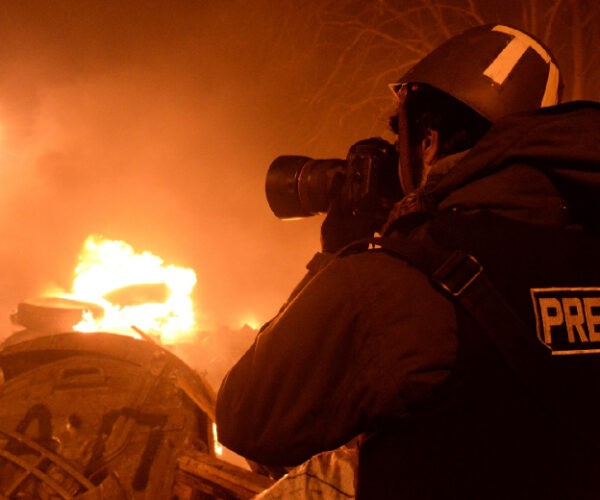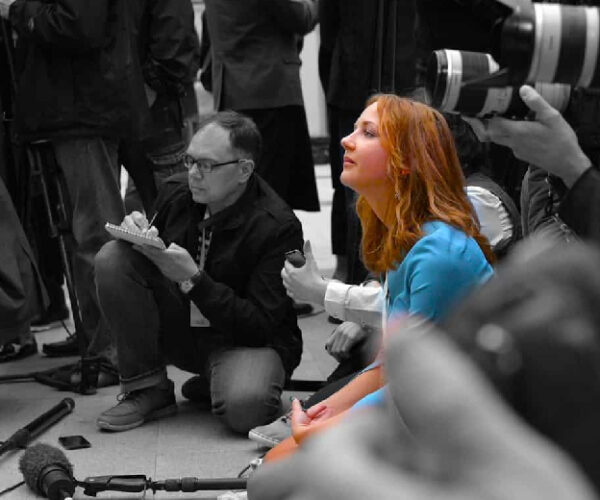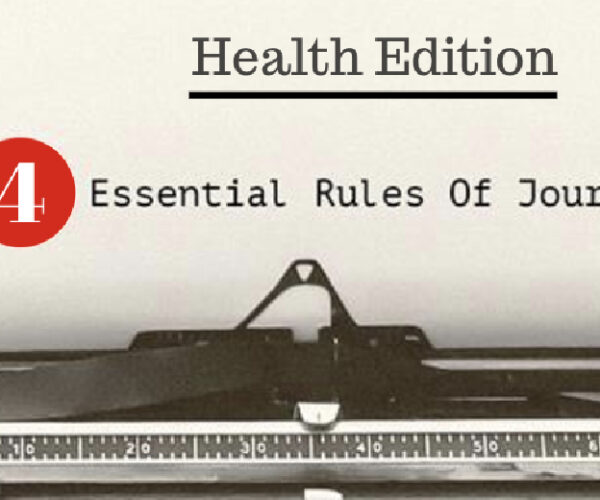Ethics in digital media is a matter of determining the best way to use digital media as a medium to produce stories, and it also involves the question about if we are allowed to post images and texts that have been submitted by the public.
The ‘new’ form of communication has it’s own ethical dilemmas that need to be dealt with when publishing information online, especially since anyone can contribute any piece they want anonymously without being vetted for accuracy or reliability beforehand.
The digital revolution is changing the very definition and ethics of journalism. A new generation of publishing tools has been handed from professional journalists to everyday citizens, while new types of participatory journalism are emerging on social media platforms such as Twitter with users like @realDonaldTrump tweeting what’s happening in their world every hour.
Amidst this chaos where old practices seem threatened by a frenetic pace of change, there are also opportunities for people looking to make an impact through freelance or part-time work at independent outlets that offer more creativity than mainstream news sites – all you need is a passion for storytelling!
Journalism’s future is largely due to the shrinkage in newsrooms. However, these fears also provide a catalyst for experimentation, such as nonprofit investigative news organizations.
Central questions include how ethical principles are suitable today and tomorrow when it comes to an “always on” atmosphere where professionals and amateurs both have a voice, thanks primarily to technology that makes publishing instantaneous
The mixed news media is a new development in the world of journalism. The rise of citizen journalists, bloggers and tweeters has created an ecosystem where professional standards can’t be applied to some without adjusting them for others; this needs to change with ethical standards that are applicable across different mediums – blogs, tweets or even articles published in newspapers.
The changes in media ethics are the most significant challenge that journalists have faced since their profession was invented.
The revolution is far greater than the discussion of principles including objectivity, or the issue of verification of citizen content – it extends to how we all think about what journalism can be today and tomorrow for a world in which everyone who has access to social media has become both its creator and critic.
Traditional journalism and online journalism are constantly at odds in the 21st century. Online media emphasizes transparency and immediacy, which contrasts with the traditional reporting culture’s values for accuracy and verified content before publication.
On one hand you have traditionally accurate but slow to publish articles pushed out by professional journalists who are gatekeepers while on the other side we see faster less verified material from non-professionals that can be corrected after it has been published because they don’t need any approval before publishing their work.
The debate of the future of global journalism is an intense one. A key question that arises in this ongoing discussion, arguably without a definitive answer yet given to it, is what are journalists’ responsibilities when they have worldwide impact? Should ethics reformulate their standards to guide a journalistic profession now with reach on such magnitude? It’s hard to know how any changes will manifest themselves across different cultures which hold varying degrees and types of importance for these ethical standards.
The challenge of media ethics today is this: what are we to make of ethical implications of a world with so many different forms and sources of journalism? Media ethicists cannot just identify these tensions. They need to untangle competing values, deciding whether to preserve or invent principles. And they have an opportunity now that social platforms like Facebook have opened up new possibilities through their online traffic metrics on what makes content go viral, e-newsletters, videos and still images shared from mobile devices—to guide both offline
SPEED, RUMOR AND CORRECTIONS. It is often said that “speed kills” and this saying rings true in the world of journalism today. More than ever before we see reports fly around online with little verification as to what facts are behind them or if they even happen at all (i.e., a fake news story). This puts major pressure on journalists who need to publish their stories quickly while still making sure the information is verified by credible sources–but it’s hard when there’s so much material circulating!
SPEED:
Reports circulate through social media outlets like Twitter faster than ever before which can make for fantastic business opportunities but also means many people don’t read content fully because they want instant gratification from finding out something juicy
As a consequence of the growth of social media, people have no issue sharing their opinions and thoughts openly.
Unlike mainstream reporters, who must cover events impartially, many bloggers are proud to speak their mind. As online journalists, many see themselves as beholden to political or social causes and reject the notion of objective reporting on the trends around them as long as they are not personally affected by them.
Partisan journalism and opinion journalism are deeply rooted in the history of journalism. As a result, they present serious ethical challenges to media outlets that are attempting to adapt to these changes while staying true to journalistic integrity
Entrepreneurial not-for-profit journalism has been on the rise in recent years. This is due to a decrease in public interest in mainstream media due to the migration of citizens to the internet, leading to a decrease in newsroom staffs. There are some journalists who doubt the viability for a media that rely solely on advertising and subscriptions with this change in society’s approach toward information consumption – but it looks like entrepreneurial non-profit journalism may be here stay!
The news media is quickly adopting social media for a more interactive, personal connection with their audience. However, reporters are often faced with ethical dilemmas when they utilize these mediums- especially on Twitter where anyone can comment anonymously and without consequence.
The use of online commenting has become prevalent in today’s world as people have an easier means to share information or discuss topics that interest them from the safety of their own home; but this practice isn’t always advised for journalists reporting objectively on sensitive matters such as politics or law enforcement because it could lead to conflict between themselves and those who may be affected by what was shared.”
According to the above discussion, one of the problematic horizontal issues is whether newsrooms should hold all types of journalists to the same standards? Does citizen journalism need to be neutral and balanced, for instance?
Reporters whose sites focus on stories before other reporters- print reporters, for example- have a chance to do so. Is pre-publication verification more closely adhered to than it is now in print reporting, or not at all if one only reports online first but then wants his colleague’s help when he writes up his piece later for publication in paper form?”
The ethical standards for images have changed with the development of new imaging technologies. Now journalists and citizens alike can use simple methods to capture or transmit these images, including wireless internet on their cell phones for instance. These technologies also allow them to alter and manipulate these photographs too!






